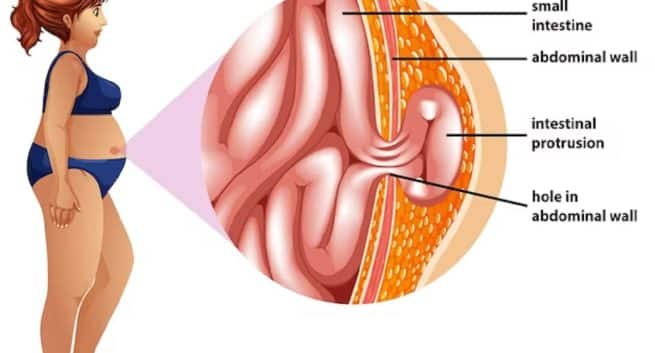
Several factors can contribute to the development of a hernia. Read on to know who are at a higher risk of developing this condition.
Hernias are a common condition that can afflict men and women of all ages. When an organ or piece of tissue pushes through a weak area in the surrounding muscle or tissue, a hernia results. Hernias can occur in different parts of the body, but the most common types of hernias are inguinal hernias (in the groin area) and hiatal hernias (in the upper part of the stomach).
Get to know more about this condition form Dr. Nanda Rajaneesh, Laparoscopic Surgeon, General Surgeon, Proctologist, Bariatric Surgeon, Apollo Spectra Hospital, Bangalore.
What are the initial symptoms of hernia?
Patients may experience different symptoms, depending on the location of the hernia. However, one of the first signs is often a bulge or lump in the affected area that may become more noticeable when standing or straining and may disappear when one lays down or relaxes. Along with the bulge, other common symptoms of a hernia include pain or discomfort in the affected area, particularly when lifting heavy objects or coughing, and a sensation of weakness or pressure in the affected area.
It is essential to seek medical attention if one notices any symptoms of a hernia, as they can worsen over time and lead to more severe complications.
What causes hernia?
There are several factors that can contribute to the development of a hernia, including age, gender, family history, obesity, pregnancy, or a history of abdominal surgery.
- Age: As individuals age, their muscles and tissues can weaken, making them more susceptible to developing a hernia. Older adults are at a higher risk of developing a hernia than younger individuals.
- Gender: Men are more prone to developing hernias compared to women. This is because of the anatomical differences between men and women, including the presence of the testicles in men, which can create weak spots in the abdominal wall.
- Family history: Hernias can run in families, and individuals with a family history of hernias are more likely to develop a hernia themselves.
- Obesity: Being overweight or obese can increase the pressure on the abdomen, causing the muscles and tissues to weaken and making an individual more susceptible to developing a hernia.
- Pregnancy: Pregnancy can also increase the pressure on the abdomen and cause the muscles and tissues to weaken, increasing the risk of developing a hernia.
- History of abdominal surgery: Individuals who have had abdominal surgery in the past are more likely to develop a hernia, as the surgery can weaken the abdominal muscles and tissues.
In some cases, hernias may develop as a result of a sudden injury or trauma to the affected area.

READ RELATED: Can Obstetric Emergencies Be Presented In Emergency Rooms?
How to prevent hernia?
Prevention of hernias is crucial, especially for individuals who are at a higher risk of developing this condition. A few preventive measures are:
- Maintain healthy weight.
- Avoid heavy lifting or straining.
- Treat chronic cough or constipation promptly.
- Practise good posture.
- Avoid smoking or using tobacco products.
By adopting these measures, individuals can significantly reduce their risk of developing a hernia and avoid the need for surgical intervention.
How is hernia treated?
The treatment for a hernia depends on various factors such as the severity of the condition and the location of the hernia.
In some cases, a hernia may be able to heal on its own without intervention, especially if it is small and does not cause any symptoms. However, in many cases, that are causing pain and discomfort, surgery is often necessary to repair the weakened area and prevent the organ or tissue from protruding further.
In some other cases, lifestyle changes such as weight loss and avoiding heavy lifting may also be recommended in conjunction with surgery or as a standalone treatment option.
Take away
Hernias are a common condition that can affect individuals of all ages and genders. A bulge or lump in the affected area, as well as pain or discomfort, may be the initial indicators of a hernia. Treatment for a hernia depends on the severity of the condition and the location of the hernia and may involve surgery in many cases. Preventive measures, such as maintaining a healthy weight and avoiding heavy lifting, can help reduce the risk of developing a hernia.
Total Wellness is now just a click away.
Follow us on
window.addEventListener(‘load’, (event) => {
// $(document).ready(function(){
$(‘#commentbtn’).on(“click”,function(){
(function(d, s, id) { var js, fjs = d.getElementsByTagName(s)[0]; if (d.getElementById(id)) return; js = d.createElement(s); js.id = id; js.src = “//connect.facebook.net/en_US/sdk.js#xfbml=1&version=v2.3”; fjs.parentNode.insertBefore(js, fjs);}(document, ‘script’, ‘facebook-jssdk’));
$(“.cmntbox”).toggle();
});
// });
});






